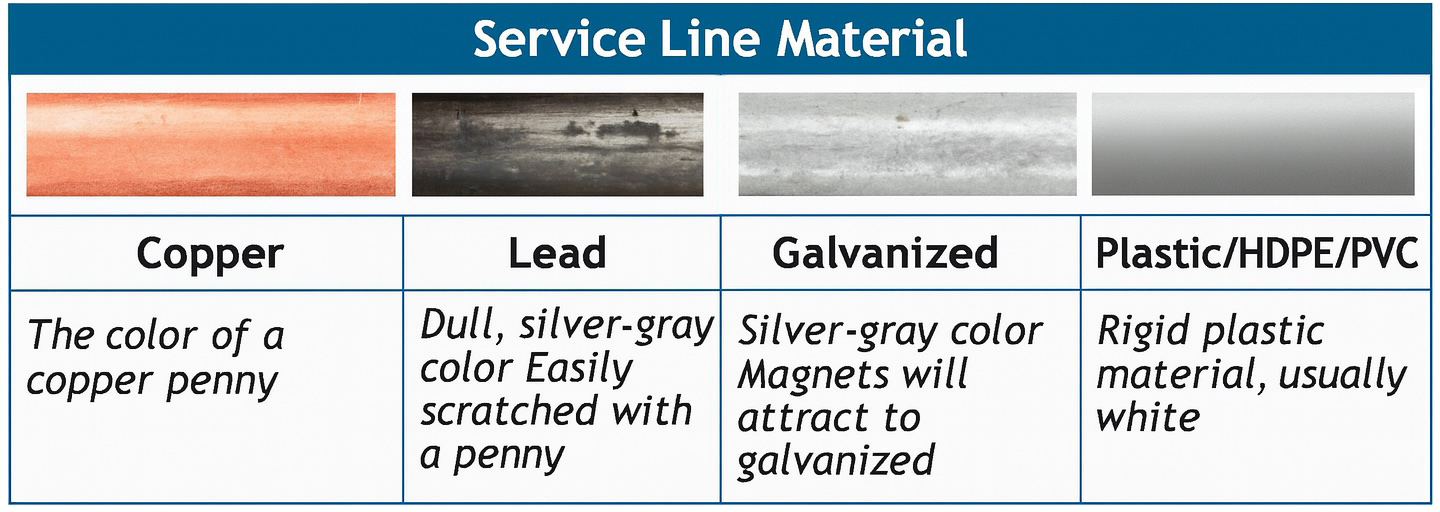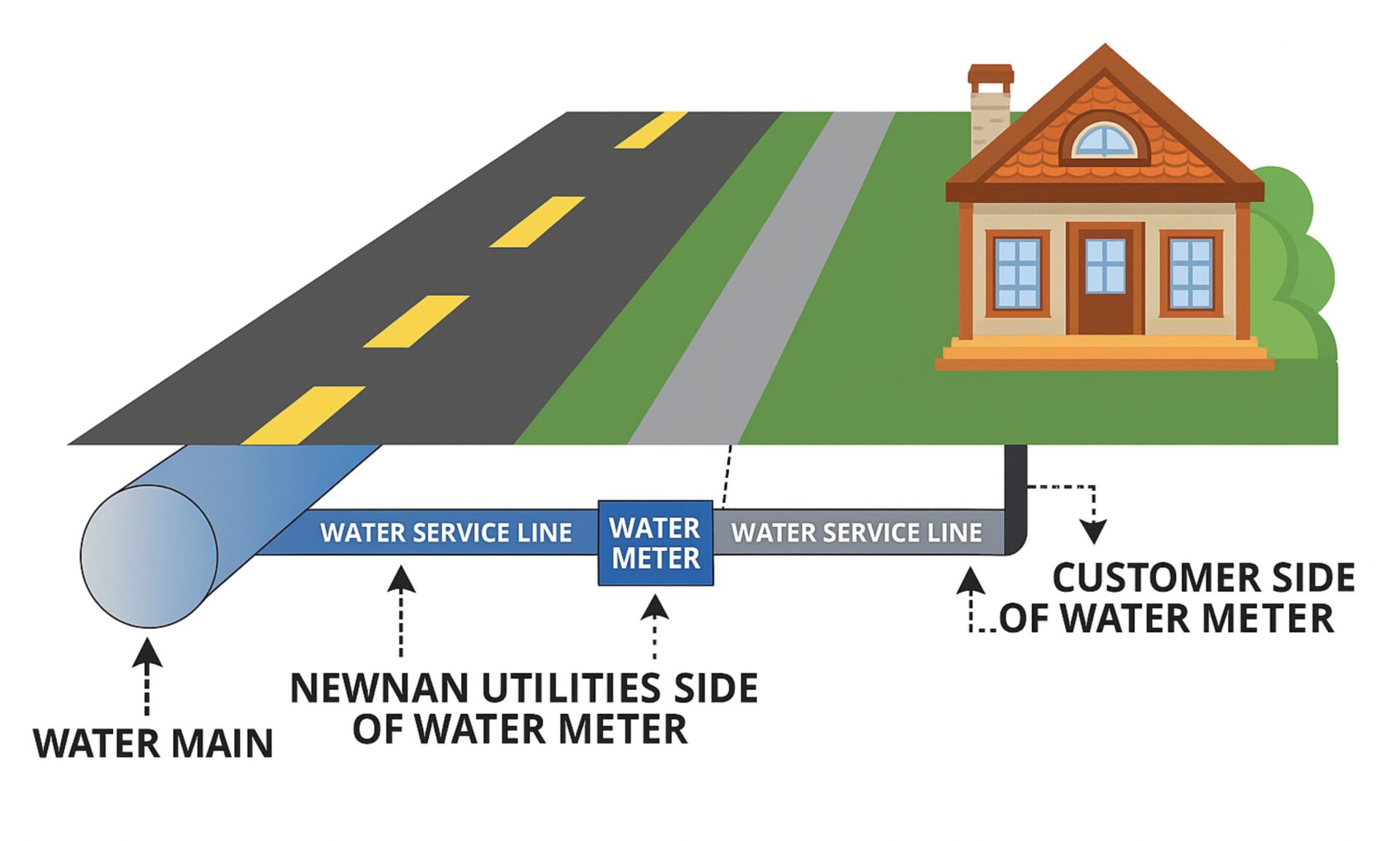Lead And Copper Pipes
Water Provided by Newnan Utilities is Safe
At Newnan Utilities, your health and safety are our top priorities.
All water produced by Newnan Utilities exceeds state and federal standards, including those set by the Environmental Protection Agency (EPA). Regular testing ensures Newnan Utilities’ water is clean, safe, and reliable.
Under federal law, we are required to inform customers about the materials used in their homes’ service lines for homes built before 1990. Plumbing systems servicing homes built before 1990 could potentially include lead.
As part of our compliance with the federal government’s Lead and Copper Rule Long-Term Revisions (LCRR), we are required to assess and report the materials used in service lines throughout the community.
Next Steps
Newnan Utilities is currently investigating all properties built before 1990. The customer service lines will be checked to determine whether the private line is made of a product that could potentially contain lead. In the coming year, Newnan Utilities will notify affected customers throughout this process. No immediate action is required from you at this time.
More information & Disclaimer
In compliance with state requirements, Newnan Utilities is providing public access to our Lead and Copper inventory through the link below:
https://ga-epd.120water-ptd.com/
This site is hosted by 120Water and connected to the State of Georgia’s tracking system. Before viewing the information, you’ll be asked to accept a disclaimer.
Legal Disclaimer: The Service Line Inventory Information provided by Newnan Utilities is compiled from a combination of historical records, physical inspections, and field observations. While Newnan Utilities makes every effort to ensure the accuracy and timeliness of this information, no guarantees are made regarding its accuracy, completeness, or reliability.
This information is intended solely to inform property owners and residents about the best available data concerning their private water service lines. It is provided for general informational purposes only and is not intended for commercial, legal, or any other use. Newnan Utilities, along with its officials and employees, expressly disclaims any and all responsibility or legal liability for the accuracy, currency, or completeness of the information presented. These records are subject to change and may be updated periodically as new data becomes available.
Newnan Utilities reserves the right to modify, amend, or remove this information at any time without prior notice.
Have Questions?
If you have any questions about the Lead and Copper Rule, the service line inventory, or the quality of your water, please don’t hesitate to Contact Us. For detailed testing results, you can also view our most recent Water Quality Report and the 2024 CCR Supplemental Lead and Copper Information.
More Information
What are the Health Effects of Lead?
Exposure to lead in drinking water can cause serious health effects in all age groups. Infants and children can have decreases in IQ and attention span. Lead exposure can lead to new learning and behavior problems or exacerbate existing learning and behavior problems. The children of women who are exposed to lead before or during pregnancy can have an increased risk of these adverse health effects. Adults can have increased risks of heart disease, high blood pressure, kidney, or nervous system problems.
What Can I Do to Reduce Exposure to Lead in Drinking Water?
- Run your water to flush out lead. If the water hasn’t been used for several hours, run the water for 15–30 seconds to flush lead from interior plumbing or run it until it becomes cold or reaches a steady temperature before using it for drinking or cooking.
- Use cold water for cooking and preparing baby formula.
- Do NOT boil water to attempt to remove lead.
- Look for alternative sources or treatment of water (such as bottled water or water filters).
- Re-test your water for lead periodically.
- Identify and replace plumbing fixtures containing lead.


